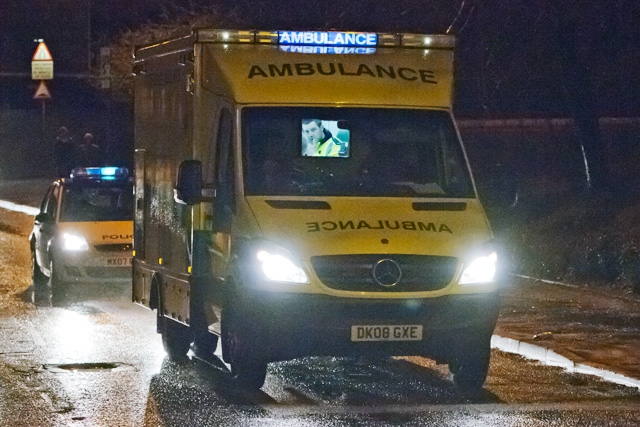Rise in activity for Ambulance Service
Date published: 29 July 2014

North West Ambulance Service NHS Trust is continuing to experience an unprecedented rise in the number of seriously ill patients throughout the North West
North West Ambulance Service NHS Trust is continuing to experience an unprecedented rise in the number of seriously ill patients throughout the North West which could lead to delays for those with less serious conditions. This rise in activity in July alone compared to last year has risen by 12.1% for our most seriously ill patients (Red Calls).
When someone calls 999, they are asked a series of questions to determine the clinical need of the patient and which category they will fall into – Red 1, extremely life-threatening, Red 2, serious and potentially life-threatening and then Green 1, 2,3 and 4 (neither serious nor life threatening.)
Director of Operations, Derek Cartwright explains: “These patients need our help urgently, they have life-threatening conditions and it is these people we need to reach within 8 minutes. We’re seeing people with conditions such as respiratory and heart conditions which can be exacerbated by the warm weather we are experiencing at the moment.
While the Trust prioritises Red 1 and 2 calls, there is also substantial investment and attention being paid to more effectively dealing with the Green calls which range from a response time of between 20 minutes and four hours.
Due to additional funding from Commissioners, NWAS is now able to pilot the development of a new Community Paramedic model in various hard to reach locations across the North West. In addition, the Service is placing some of the Senior Paramedics and Paramedics on rapid response vehicles on Green 999 incidents, the aim being to reduce unnecessary hospital attendances. These two initiatives will help support the Trust drive to help patients by providing safe care closer to home.
This additional funding has also enabled the Trust to put on hold some of the resource reductions which were proposed last month.
Derek comments: “We have in place a ‘hear and treat’ and ‘see and treat’ system, whereby the less serious calls can receive either telephone self care advice, or can be referred to other healthcare providers such as a GP or walk-in centre. We know that for some of our callers, while they do need some form of treatment, the accident and emergency department is not the right place for them so by offering telephone or face to face advice, we are reducing the number of ambulance journeys which frees up our vehicles to attend the more serious life-threatening conditions.
“While we understand that to everyone who rings 999, their problem is an urgent one, however, we have to prioritise our resources and, while we strive to reach everyone as quickly as possible, it is likely that those with less serious conditions may have to wait longer for an ambulance.”
While the Trust can refer patients to other services such as 111, walk-in centres, GP or their local pharmacies, patients are advised to consider these services before calling 999 if their condition is not life-threatening.
Do you have a story for us?
Let us know by emailing news@rochdaleonline.co.uk
All contact will be treated in confidence.
Most Viewed News Stories
- 1Royton haulage firm fined after Rochdale dad went to work and didn’t come home
- 2Rochdale church to host Camerados public living room
- 3Unique colour and sound experience comes to Rochdale in May
- 4Suspended council candidate was ‘politically naive’ for appearing in George Galloway video, leader...
- 5Community support needed for funding bid to repair viaduct on East Lancashire Railway route
To contact the Rochdale Online news desk, email news@rochdaleonline.co.uk or visit our news submission page.
To get the latest news on your desktop or mobile, follow Rochdale Online on Twitter and Facebook.


